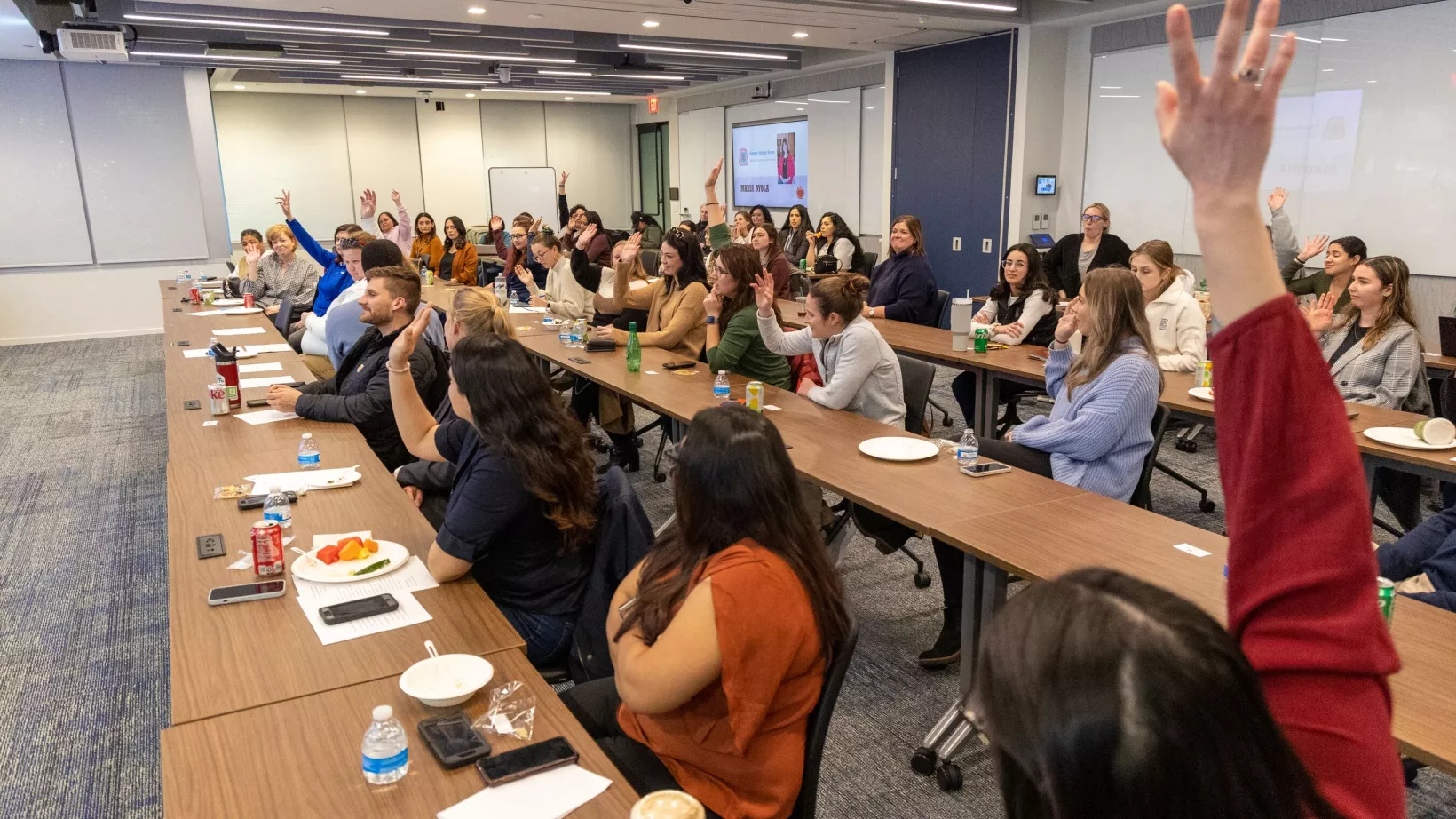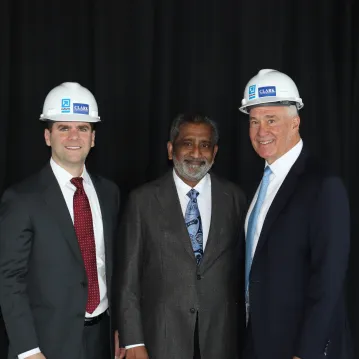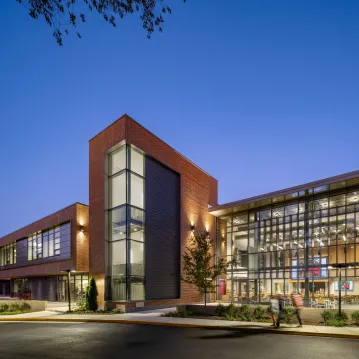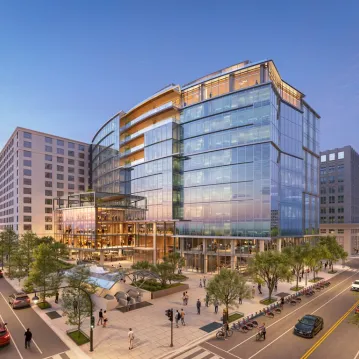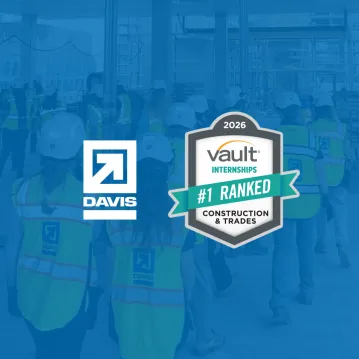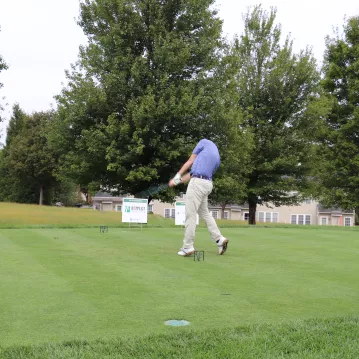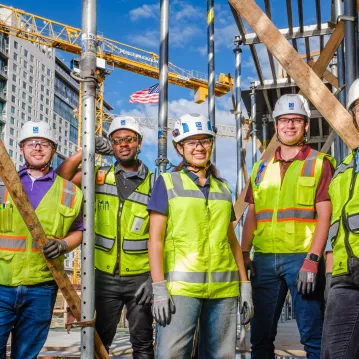Innovator Spotlight - Kayla Bonish
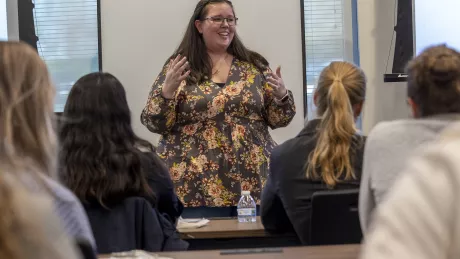
At DAVIS, we’re constantly looking for ways to stay ahead of the curve. This industry is always evolving, and the only way to succeed is to innovate. This year, we’re featuring people at DAVIS who help us continue to break new ground—in more ways than one.
As Project Manager, Kayla Bonish takes on challenges at multiple levels and ensures successful completion of DAVIS projects. Kayla was also a co-founder of the National Association of Women in Construction(NAWIC)’s Northern Virginia chapter!
Read below to learn more about Kayla and the incredible work she does at DAVIS!
Kayla, tell us the story of how you found yourself as a DAVIS Project Manager!
I started with DAVIS back in 2018 as an intern, and actually came back for a second internship in the summer of 2019—then I started full time in December 2019. I’ve been in the Interiors department ever since, and since being promoted to Project Manager, I’ve taken on more responsibilities and gained some great experience.
Was construction always your path in life?
Funnily enough, no—I was obsessed with NASA in high school and wanted to go to space. Soon after I started college, though, I realized it wasn’t for me. I really enjoyed meeting some folks from Virginia Tech’s construction management program, and quickly realized how cool building things could be! My first internship with DAVIS helped me understand how much of a community the industry is, and the collaboration and teamwork between project teams drew me into this kind of role. I also met people like Dave Purdy who had such passion for their projects, and that was so exciting.
What’s something about you that lends well to a job in construction?
(laughs) I talk a lot! So, communication is probably one of my biggest strong suits. I also think it’s really important to be open to new connections and have the willingness to learn. My biggest responsibility is making sure everyone’s experience within the building process is fair and equitable, from the client to subcontractors, and that communication and ability to make connections is key.
Do you have a favorite experience in your career so far?
We were honored with the opportunity to build out a space for Calvary Women’s Services, an organization that helps women in the DC area that have experienced domestic violence—creating a safe space for them was extremely rewarding.
There’s also so many cool things we’ve gotten to see—I even saw President Obama’s office one time! In construction, you feel this sense of connection to your projects that is so unique. I pass by buildings I’ve worked on and think about how it used to be a white box, but now it’s a space for a happy client.
What makes DAVIS stand out, in your opinion?
As a company, we uplift each other, and are always open to helping out one another—even if we’re on separate projects, we make sure everyone is okay. Being an ESOP company, I think we take each other’s success seriously. As much as I want to be successful, I want the same thing for my next door neighbor, and that team approach is huge.
You were the youngest co-founder of the National Association of Women in Construction(NAWIC)’s Northern Virginia chapter. What led to that, and how has the experience been for you?
For me, the motivation was clear. So many people want this kind of a network for women (and allies) supporting women, and there just needed to be an opportunity. We’ve also had an amazing outpouring of support from the subcontractor community.
The experience has been so great, too. We have a really diverse set of members in the chapter, and it’s so cool to see how different generations of women collaborate with each other. Our older members share the wisdom they’ve gained, and our youngest members help find new ways to approach things. I’ve personally grown to understand the people who have paved the way for me in the industry on a greater level, and I’ve even had opportunities to mentor others.
What would you say is your biggest challenge as a woman in construction, and what is your best advice for a woman in the industry?
It can be difficult to build trust as a woman. There’s a connotation that women aren’t as knowledgeable because they haven’t been in the industry a very long time—but we actually have, and we’ve been successful, too. Not having that trust can make it hard to get someone to really listen to you, and this industry is based on having enough trust in each other. I’ve had experiences where a male colleague makes that connection with someone immediately, but I’m approached with a bit of distance.
My best advice is to advocate for yourself, and to really know what you deserve, because you do deserve a great career. It’s crucial to make sure that at the end of the day you are okay, and that if you do need any help, you can seek it.
Women make up about 11% of the construction workforce. How can we do more to bring women into the industry?
I think it starts with advocating in the community more often, and really showing kids what construction is about. NAWIC has a building program called Block Kids—we go out into the community and spend a whole day with students opening their eyes to construction, and how it’s something that young girls can be interested in as well as boys. That’s the type of work that can really pay off in the future.
This year, we’ve been focusing on how to network further outside our own circles, and to think critically about these systemic problems in our industry.
What events are coming up for NAWIC?
Our Northeast Region Spring Forum is actually in DC May 5-6! We’re going to have keynote speakers, and two days of activity, so we encourage anyone to come out and support NAWIC.
If you’re a woman interested in joining NAWIC’s NoVa chapter, send an email to nawicnova@gmail.com!
